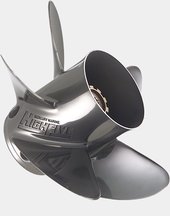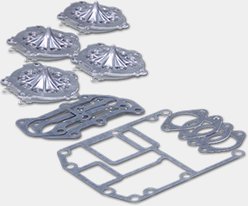It seems that as long as sailors have sailed the Seven Seas, they have held superstitious beliefs about things that could bring bad luck to a ship. Today, many boaters still follow these superstitions – such as not renaming a boat – without even knowing where they came from. Here are the origins of five common boating superstitions.
- It’s bad luck to rename a boat. This widespread notion dates back to ancient Greek mythology. Legend had it that Poseidon, Greek god of the sea, possessed a scroll called the Ledger of the Deep into which the names of all the ships afloat were entered. If you changed the name of a boat in the ledger, sailors believed it would bring Poseidon’s wrath down upon the vessel.
Today, if you purchase a pre-owned boat and want to give it a new name, some believe there is a way to avoid the curse. First, you must rid the vessel of any trace of its old name – not only on the transom, but also in any maintenance manuals, logbooks, etc. This will purge the old name from Ledger of the Deep. Then, gather your family and friends and hold a boat re-christening ceremony on board. Pay homage to Poseidon; say the vessel’s new name out loud and ask him to grant it safe passage. (For a more elaborate version of this ceremony, visit www.discoverboating.com/resources/ceremony-for-renaming-your-boat.)
- Never step onto a boat with your left foot. This sailors’ superstition stems from a medieval misperception that the left side was unlucky. In fact, during the Middle Ages, the Latin word for “left” and “sinister,” gained a negative connotation, while “dexter,” the word for “right,” became the root of the positive term “dexterous.” Sailors always made sure they boarded a ship with their right foot first.
- Whistling is forbidden on board. Sailors believed that whistling on deck would summon a fierce wind that could sink the boat. In addition, the sound of a person whistling might be confused with the pipe or whistle that a bosun used to give commands to lower-ranking sailors. There was one exception to the rule, however. The ship’s cook was allowed – even encouraged – to whistle, because as long as he was whistling, he wasn’t eating his shipmates’ rations.
- Bananas should be banned from boats. This superstition, dating back to the 1700s, is particularly prevalent among anglers, who believe you will never catch a fish from a boat that has a banana on board. There are numerous theories as to how bananas got such a bad rap. One is that ships transporting bananas had to sail fast in order to get to port before the fruit ripened; too fast for the sailors to troll effectively for fish while enroute. In addition, bananas release ethylene gas, which makes other fruit stored nearby ripen and ultimately rot more quickly. Sailors also were afraid of the deadly tropical spiders that sometimes hid in the banana crates in the cargo hold.
- Cats bring boats good luck. Finally, a positive sailor’s superstition! Ships of old commonly sailed with cats because the furry felines helped to control the rodent population on board. Ship’s cats also prevented rats from gnawing on wooden decks and rope rigging, as well as eating the cargo. Sailors believed that if you took care of the ship’s cat, good luck would follow. Conversely, if the cat fell overboard, that could summon a deadly storm. In addition, many sailors believed a ship’s cat had magical power over the weather. This probably can be chalked up to an animal’s natural sensitivity to changes in the atmosphere, which sometimes allows it to sense an approaching storm before the human crew.
While many boating superstitions got their start as a practical response to a perceived threat to life on board ship, today, we can enjoy them as colorful pieces of nautical lore. So, the next time you go boating, feel free to whistle a tune to your heart’s content!




















